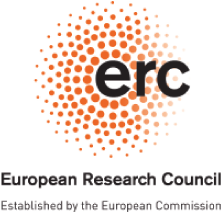Medical Testing, Diagnosis and Value
Street, A., Kelly, A.H., 2021
A DiaDev edited special issue of Medicine Anthropology Theory, exploring the emerging field of anthropology of medical testing
Search Academic Publications content e.g. by keyword, title, publication or author
Street, A., Kelly, A.H., 2021
A DiaDev edited special issue of Medicine Anthropology Theory, exploring the emerging field of anthropology of medical testing
Street, A and Kelly, A.H., 2021
Street, A., & Kelly, A. (2021). Introduction: Diagnostics, Medical Testing, and Value in Medical Anthropology. Medicine Anthropology Theory, 8(2), 1-16. https://doi.org/10.17157/mat.8...
Read the introduction to our special issue on medical testing, diagnosis and value here
Bevan, I., Stage Baxter, M., Stagg, H.R., Street, A., 2021
Diagnostics
Testing programs for COVID-19 depend on the voluntary actions of members of the public for their success. Understanding people’s knowledge, attitudes, and behavior related to COVID-19 testing is, therefore, key to the design of effective testing programs worldwide. This paper reports on the findings of a rapid scoping review to map the extent, characteristics, and scope of social science research on COVID-19 testing and identifies key themes from the literature. Main findings include the discoveries that people are largely accepting of testing technologies and guidelines and that a sense of social solidarity is a key motivator of testing uptake. The main barriers to accessing and undertaking testing include uncertainty about eligibility and how to access tests, difficulty interpreting symptoms, logistical issues including transport to and from test sites and the discomfort of sample extraction, and concerns about the consequences of a positive result. The review found that existing research was limited in depth and scope. More research employing longitudinal and qualitative methods based in under-resourced settings and examining intersections between testing and experiences of social, political, and economic vulnerability is needed. Last, the findings of this review suggest that testing should be understood as a social process that is inseparable from processes of contact tracing and isolation and is embedded in people’s everyday routines, livelihoods and relationships
Bevan I, Stage Baxter M, Stagg HR, Street A. Knowledge, Attitudes, and Behavior Related to COVID-19 Testing: A Rapid Scoping Review. Diagnostics. 2021; 11(9):1685. https://doi.org/10.3390/diagno...
Ramandeep Singh S., Salimato, S., Last, A., Cassama, E., Goncalves, A., Kelly, A.H., Street, A., Harding-Esch, E.M, 2020
Transactions of the Royal Society of Tropical Medicine and Hygiene
Trachoma is the leading infectious cause of blindness worldwide and is nearing elimination as a public health problem in Guinea Bissau. It is imperative that elimination is followed by a successful postvalidation surveillance programme. The aim of this study was to determine the acceptability and perceived utility of different diagnostic tests and sample types that could be used for postvalidation trachoma surveillance in the Bijagos Islands, Guinea Bissau.
Bah, F., Vernooij, E., Street, A., 2021
Medicine, Anthropology, Theory
What is the value of a diagnostic test? Most obviously for primary healthcare settings, laboratory tests can inform clinical decision making about treatment and patient management. Their predominant value in this context is therefore medical. But what about when that healthcare setting is chronically under-resourced, healthcare workers (including laboratory workers) are underpaid, and government supply chains fail to deliver basic laboratory supplies? In this contribution to the Field Notes section, we describe a Community Health Centre (CHC) in Sierra Leone where such conditions have given rise to a quasi-private laboratory service within the public health facility. Through detailed ethnographic description of patients’ diagnostic pathways through the facility, we examine and assess the impact on patient care when the medical and economic value of diagnostic tests diverge.
Vernooij, E., 2021
Medicine, Anthropology, Theory
This research article examines the relationship between infrastructural instability and laboratory work in a public referral hospital in Sierra Leone. Drawing on ethnographic fieldwork conducted inside the hospital’s wards and clinical laboratory, I show how attending to infrastructure and materiality (i.e., laboratory spaces, diagnostic equipment, and supply chains) provides insight into the different kinds of value that laboratory work holds for laboratory technicians, clinicians, hospital administrators, and international donors. Through the case study of a newly arrived non-functioning diagnostic instrument, I reveal the institutional undervaluing of both the laboratory and the improvisation work performed by lab technicians to stabilise unstable equipment. Infrastructural instability in the laboratory enables the generation of new kinds of value, including economic and social value for laboratory technicians themselves, but undermines the clinical value of laboratory tests for clinicians and patients. By discussing the everyday practices, challenges, and meanings of laboratory work in a context of infrastructural instability, I aim to draw attention to the clinical laboratory space as a field site worthy of (more) anthropological inquiry and health systems research and contribute new insights about improvisation, instability, and diagnostic value creation in under-resourced settings.
Vernooij, E., Koker, F., Street, A., 2021
Social Science and Medicine
Central to the workings of a hospital are the technical and bureaucratic systems that ensure the effective coordination of information and biological materials of patients across time and space. In this paper, which is based on ethnographic research in a public referral hospital in Freetown, Sierra Leone, conducted between October 2018 and September 2019, we adopt a patient pathway approach to examine moments of breakdown and repair in the coordination of patient care. Through the in-depth analysis of a single patient pathway through the hospital, we show how coordination work depends on frequent small acts of intervention and improvisation by multiple people across the pathway, including doctors, managers, nurses, patients and their relatives. We argue that such interventions depend on the individualisation of responsibility for ‘making the system work’ and are best conceptualised as acts of temporary repair and care for the health system itself. Examining how responsibility for the repair of the system is distributed and valued, both within the hospital and in terms of broader structures of health funding and policy, we argue, is essential to developing more sustainable systems for repair.
Vernooij, E., Koker, F., & Street, A. (2021). Responsibility, repair and care in Sierra Leone's health system. Social Science & Medicine, 114260.
Taylor, E.M., 2020
Diagnostics
Neglected Tropical Diseases (NTDs) marked out for disease elimination provide a lens through which to explore the changing status of diagnosis in global health. This paper reports on the findings of a scoping review, which set out to explore the main debates around diagnosis for the elimination of NTDs, including the multiple roles diagnostic technologies are being ascribed and the ideal characteristics of tests. It also attempts to summarise the state of diagnosis for three NTDs with elimination goals. The review places special emphasis on point-of-care testing in acknowledgement of the remote and underserved areas where NTDs proliferate. Early NTD campaigns were largely focused on attack phase planning, whereby a similar set of interventions could be transplanted anywhere. Now, with elimination goals in sight, strategies must be tailored to local settings if they are to attain and sustain success. Diagnostic data helps with local adaptation and is increasingly used for programmatic decision-making. The review finds that elimination goals reframe whom diagnosis is for and the myriad roles diagnostics can play. The exigencies of elimination also serve to highlight deficiencies in the current diagnostic arsenal and development pipeline for many NTDs. Moving forward, a guiding framework is needed to drive research and stimulate investment in diagnosis to support NTD goals
Taylor, E. M. (2020). NTD Diagnostics for Disease Elimination: A Review. Diagnostics, 10(6), 375.
Page 1 of 2 Newer




